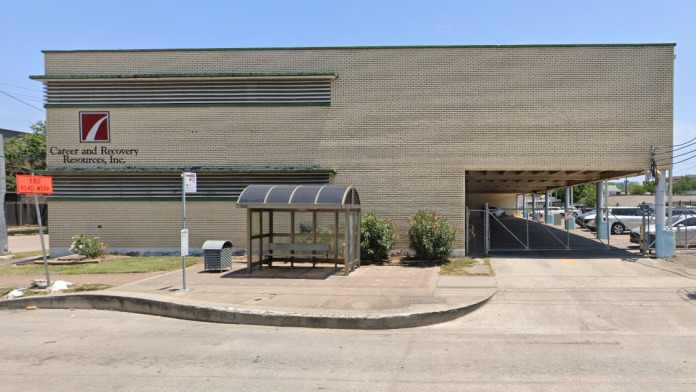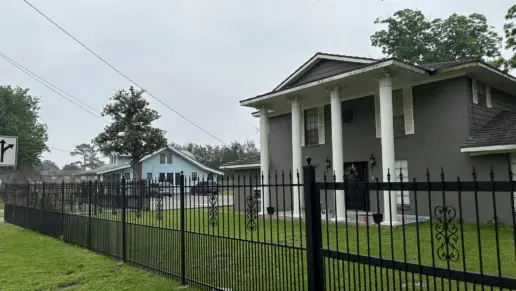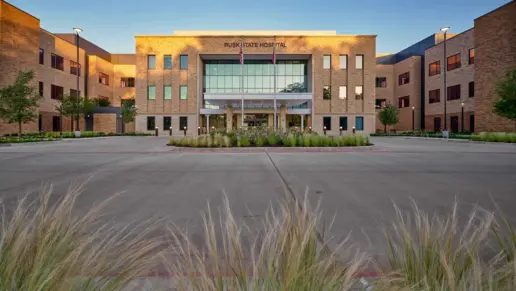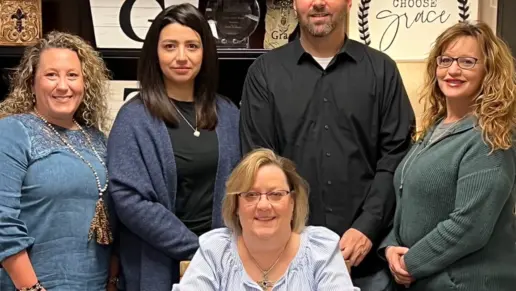About Career and Recovery Resources
Career and Recovery Resources helps people achieve self-sufficiency and financial stability through wellness programs, job training and affordable housing. They break barriers for people struggling with substance use, unemployment and housing instability. They’re located in Houston, Texas. Their services prioritize youths, veterans and individuals involved with the criminal justice system. Their outpatient substance use treatment is a 90-day program that uses proven therapeutic practices to help clients achieve and maintain sobriety.
They prioritize recovery focused individualized treatment that also addresses work, housing and family needs. They deliver trauma informed care in an environment that is safe and conducive for both men and women. The program involves both group and individual counseling sessions. The sessions cover a range of essential recovery topics designed to strengthen your support system. You’ll learn how to better manage stress and anger, communicate effectively and maintain or develop healthy relationships. These are important life skills that foster solid coping and relapse prevention skills.
You’ll also receive substance use education to help you understand addiction better and the recovery tools at your disposal. They may even offer literacy skills that you can apply in the real world. This includes tech navigation, healthcare comprehension and resource access. They also offer GED classes, financial literacy and on the job training. Veterans can benefit from these literacy initiatives as well. This is in addition to their core veteran services like employment assistance, healthcare and housing navigation.
This program is facilitated by licensed and experienced counselors committed to your recovery goals. They’ll provide referrals to resources relevant to your continued recovery during and after treatment. They even offer free ongoing peer recovery support groups. The program also includes case management services that help you find employment and housing support to aid in your recovery. Another essential service available in this location is 1st offender DUI/DWIE court ordered program. Comments from past clients reflect an overall positive experience and incredible quality of care.
Latest Reviews
Rehab Score
Gallery

Location
Other Forms of Payment
Medicaid is a state based program that helps lower-income individuals and families pay for healthcare. Medicaid covers addiction treatment so those enrolled can use their coverage to pay for rehab. When a program accepts Medicaid the client often pays very little or nothing out of their own pocket.
Self-pay involves paying for treatment out of your own pocket. You can use savings or credit, get a personal loan, or receive help from family and friends to fund your treatment. If you don't have insurance or your insurance plan doesn't cover a specific program, self-pay can help ensure you still get the care you need.
Financial aid can take many forms. Centers may have grants or scholarships available to clients who meet eligibility requirements. Programs that receive SAMHSA grants may have financial aid available for those who need treatment as well. Grants and scholarships can help you pai for treatment without having to repay.
Sliding scale payments are based on a client's income and family size. The goal is to make treatment affordable to everyone. By taking these factors into account, addiction recovery care providers help ensure that your treatment does not become a financial burden to you or your family, eliminating one barrier to care.
Addiction Treatments
Levels of Care
Treatments
The goal of treatment for alcoholism is abstinence. Those with poor social support, poor motivation, or psychiatric disorders tend to relapse within a few years of treatment. For these people, success is measured by longer periods of abstinence, reduced use of alcohol, better health, and improved social functioning. Recovery and Maintenance are usually based on 12 step programs and AA meetings.
During rehab in Texas, you'll deal with underlying issues that contribute to addiction. By addressing these challenges and learning healthy ways to cope with them, you'll develop strategies that help you live a drug-free lifestyle.
Many of those suffering from addiction also suffer from mental or emotional illnesses like schizophrenia, bipolar disorder, depression, or anxiety disorders. Rehab and other substance abuse facilities treating those with a dual diagnosis or co-occurring disorder administer psychiatric treatment to address the person's mental health issue in addition to drug and alcohol rehabilitation.
Opioid rehabs specialize in supporting those recovering from opioid addiction. They treat those suffering from addiction to illegal opioids like heroin, as well as prescription drugs like oxycodone. These centers typically combine both physical as well as mental and emotional support to help stop addiction. Physical support often includes medical detox and subsequent medical support (including medication), and mental support includes in-depth therapy to address the underlying causes of addiction.
Substance rehabs focus on helping individuals recover from substance abuse, including alcohol and drug addiction (both illegal and prescription drugs). They often include the opportunity to engage in both individual as well as group therapy.
Programs



Clinical Services
Cognitive Behavioral Therapy (CBT) is a therapy modality that focuses on the relationship between one's thoughts, feelings, and behaviors. It is used to establish and allow for healthy responses to thoughts and feelings (instead of unhealthy responses, like using drugs or alcohol). CBT has been proven effective for recovering addicts of all kinds, and is used to strengthen a patient's own self-awareness and ability to self-regulate. CBT allows individuals to monitor their own emotional state, become more adept at communicating with others, and manage stress without needing to engage in substance abuse.
Group therapy is any therapeutic work that happens in a group (not one-on-one). There are a number of different group therapy modalities, including support groups, experiential therapy, psycho-education, and more. Group therapy involves treatment as well as processing interaction between group members.
In individual therapy, a patient meets one-on-one with a trained psychologist or counselor. Therapy is a pivotal part of effective substance abuse treatment, as it often covers root causes of addiction, including challenges faced by the patient in their social, family, and work/school life.
They offer Job Readiness Training which consist of: Career Assessment, orientation, how to fill out a job application, resume writing, interviewing skills, marketing skills training, along with financial planning. Their goal is to assist clients in achieving their professional career potential by researching occupational choices, sharpening job search skills, and helping clients understand and overcome the barriers that may keep them from reaching their goal.
Trauma therapy addresses traumatic incidents from a client's past that are likely affecting their present-day experience. Trauma is often one of the primary triggers and potential causes of addiction, and can stem from child sexual abuse, domestic violence, having a parent with a mental illness, losing one or both parents at a young age, teenage or adult sexual assault, or any number of other factors. The purpose of trauma therapy is to allow a patient to process trauma and move through and past it, with the help of trained and compassionate mental health professionals.
Amenities
-
Private Setting
Accreditations

The Commission on Accreditation of Rehabilitation Facilities (CARF) is a non-profit organization that specifically accredits rehab organizations. Founded in 1966, CARF's, mission is to help service providers like rehab facilities maintain high standards of care.
CARF Accreditation: Yes
Contact Information
2525 San Jacinto Street
Houston, TX 77002


